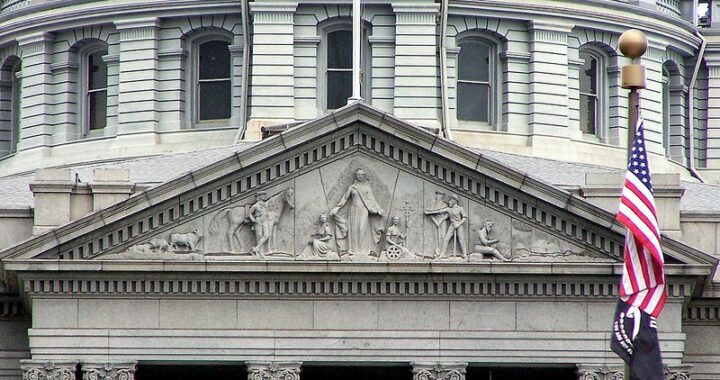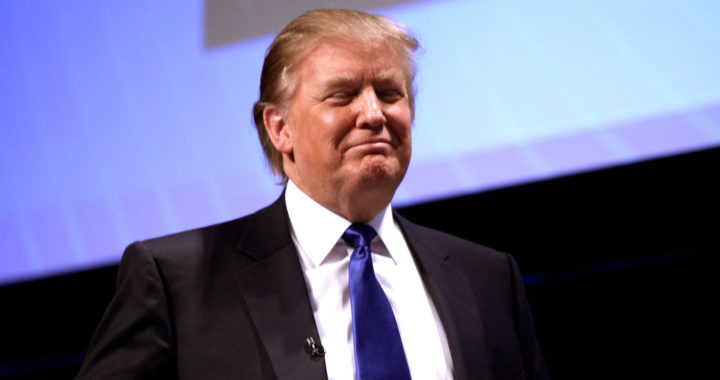Colorado Earthquake: Trump Disqualified, 2024 Shivers on Unstable Ground
by Patrick Wilson
A political tremor has ripped through the heartland, sending shockwaves across the nation. In a 4-3 decision with the weight of history on its shoulders, the Colorado Supreme Court has disqualified Donald Trump from appearing on the state’s 2024 presidential ballot. The reason? His role in the January 6th Capitol insurrection, deemed a violation of the Fourteenth Amendment’s “Insurrectionist Clause.” This unprecedented earthquake reshapes the entire 2024 landscape, leaving legal scholars scrambling, pundits gasping, and the very foundations of American democracy wobbling precariously.
The Ground Cracks Open:
The court’s verdict hinges on a rarely examined corner of the Constitution, Section 3 of the Fourteenth Amendment. It bars individuals from holding federal office if they’ve “engaged in insurrection or rebellion against the Constitution.” The court’s searing majority opinion argues that Trump’s incendiary rhetoric and deliberate incitement of the Capitol mob constitute precisely that – a brazen attempt to overturn a democratic election, the purest form of insurrection. This isn’t just a legal earthquake; it’s a tectonic shift, setting a precedent that could reshape American politics for generations.
Pandora’s Box Unlatched:
This decision throws open a legal Pandora’s box. While confined to Colorado for now, it emboldens similar disqualification efforts in other states with comparable provisions. The specter of the Insurrectionist Clause haunting presidential candidates is a chilling prospect, promising years of bitter legal battles and potentially escalating to the Supreme Court, where the fate of this precedent hangs in the balance.
Election on Unstable Ground:
The immediate impact on the 2024 race is undeniable. Trump’s Colorado exile throws the Republican field into disarray, potentially benefiting other contenders like DeSantis or Pence. But this earthquake isn’t just about shifting campaign strategies; it’s about voter mobilization on steroids. Both Democratic and Republican bases are likely to be electrified, turning out in record numbers, their resolve hardened by the seismic tremors of accountability. The potential for voter suppression tactics adds another layer of volatility to this already combustible landscape.
Beyond the Ballot Box: A Social Reckoning:
This legal earthquake has tremors far beyond the ballot box. It signifies a turning point in American discourse, where the notion of holding the highest officeholder accountable for anti-democratic actions, even the unthinkable, takes center stage. For the left, this resonates deeply. It validates calls for robust defense of democratic institutions and the rule of law, even when faced with formidable power structures. But it’s also a double-edged sword, guaranteed to ignite fierce resistance from the right, potentially widening the ideological chasm.
Uncertainties and the Road Ahead:
The aftershocks of this decision are just beginning. Legal challenges are inevitable, culminating in a potential Supreme Court showdown that will hold the future of American democracy in its trembling hands. Regardless of the legal outcome, one thing is certain: the political landscape has been irrevocably altered. This isn’t just a judicial intervention; it’s a societal reckoning, forcing us to confront the limits of power in a democracy and the delicate dance between individual liberty and collective well-being.
For the Left Lens:
This earthquake offers fertile ground for critical analysis and theoretical engagement. The application of the Insurrectionist Clause to a former president demands a deep dive into the power dynamics embedded within American democracy. It paves the way for discussions about the role of institutions in safeguarding democratic norms and resisting authoritarian tendencies. The impact of this decision on social movements, grassroots activism, and the broader struggle for social justice deserves meticulous examination.
** This piece was created with the help of ai.


